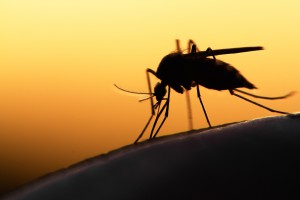Five things to know about Zika virus
Posted: March 15, 2016
With spring break upon us, Kathleen DiCaprio, PhD, chair of the Doctor of Health Sciences program at A.T. Still University-College of Graduate Health Studies, discusses Zika virus. Zika is an emerging mosquito-borne virus that has been recorded in Africa, South America, Asia, and the Pacific Islands. Dr. DiCaprio has a history of teaching undergraduate, graduate, and medical courses in areas related to infectious diseases and infection control, immunology, public health, and emergency preparedness. What is Zika virus, and where did it come from? Zika virus is a Flavivirus that is transmitted, mostly, to humans by the Aedes mosquito. The virus was discovered around 1948 from a febrile monkey in the Zika Forest, a tropical forest in Uganda. How do people get Zika virus? People get infected with Zika virus either through the bite of an infected female Aedes mosquito or sexual transmission from a man infected with the virus. Additionally, pregnant women can pass Zika virus to her fetus during pregnancy. What are the symptoms? Most people infected with Zika do not experience symptoms. If symptoms do arise, they are usually mild and last a few days to a week. The most common symptoms include fever, rash, joint pain and conjunctivitis (red eyes) and sometimes muscle pain and headache. Who is at risk? Anyone traveling to a place where Zika virus has been reported and who are exposed to mosquitoes are at risk. Additionally, having sexual intercourse with an infected man may also increase risk of contracting the virus. Probably the most noteworthy at risk include pregnant women and their growing babies. There are no vaccines or treatments to-date, what are some appropriate preventative measures you recommend? If you are traveling to a place where Zika virus has been found, it is definitely a good idea to take steps to prevent mosquito bites. Also, using a condom during sex to minimize risk of transmission. You can get information about areas with Zika from the CDC website at cdc.gov/zika. It has been reported that microcephaly may be linked to Zika virus. How might the virus affect pregnancies? Although early studies have demonstrated in infected mice that the virus could infect neurons, researchers are still trying to figure out the connection and specifics. Some data support an association between the occurrences of microcephaly with infection early in pregnancy. At this point, there is much concern regarding complications of Zika virus infection including microcephaly as well as Guillain-Barré syndrome, a disorder in which the body’s immune system attacks the nerves. Dr. DiCaprio adds that in the U.S., there have only been travel-associated cases and no local mosquito-borne Zika cases. There have been some local mosquito-borne cases reported in U.S. Territories, including Puerto Rico, U.S. Virgin Islands and America Samoa. According to the CDC, the number of Zika cases among travelers visiting or returning to the U.S. will likely increase, however, 80 percent of cases will not be diagnosed.